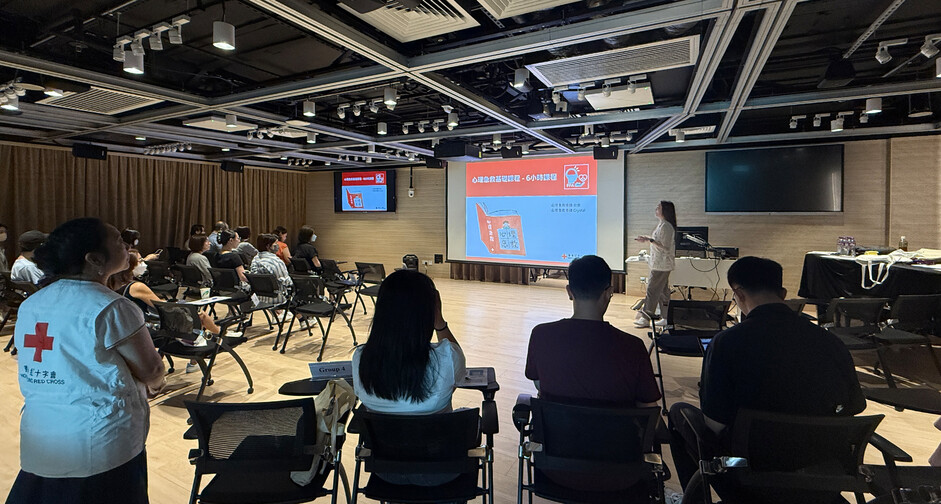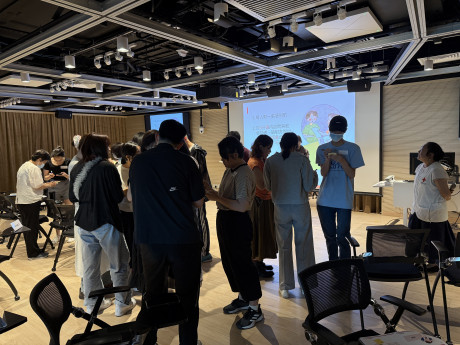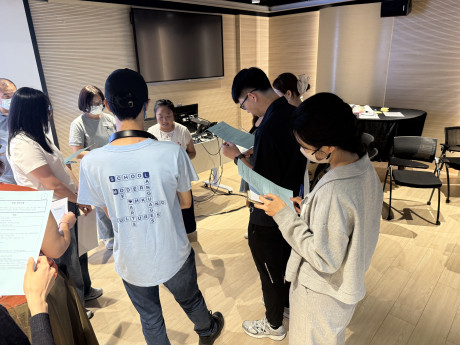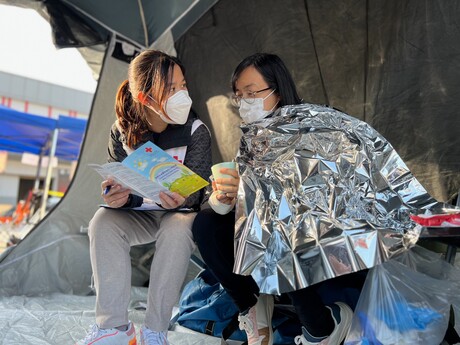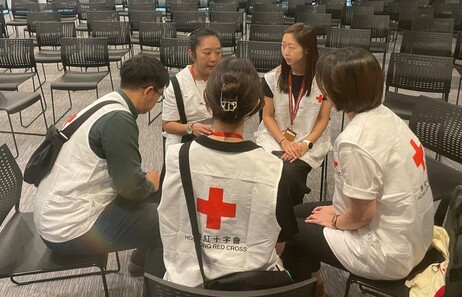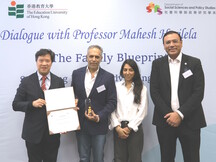EdUHK Collaborates with the Hong Kong Red Cross in ‘Psychological First Aid’ Pilot Scheme
The Education University of Hong Kong (EdUHK) places strong emphasis on the mental health of its students and staff. In view of the growing number of people in Hong Kong facing emotional crises in recent years, EdUHK has partnered with the Hong Kong Red Cross (HKRC) since July of last year in a pilot scheme for ‘Psychological First Aid’. The course equips students, staff, and alumni with basic psychological first aid and support skills, helping them cope with stress and emergencies while extending timely assistance to those around them.
2,400 Students, Staff, and Alumni Completed Training
Equipped to Support Peers and Build a Campus-Wide Support Network
To date, around 2,400 students, staff, and alumni have completed the training. The scheme aims to raise awareness of mental health across society, starting with university students. Psychological first aid is a globally recognised psychological intervention method supported by international research evidence. Its core objective is to effectively alleviate the initial distress experienced by individuals after critical incidents, while enhancing their ability to adapt and cope with the event. It is important to note that psychological first aid is not psychotherapy. Rather, it emphasises a humane approach through attentive listening, expressing care, building trust, and providing practical assistance to help stabilise emotions and strengthen a sense of safety.
Course Offers Practical Insights
Promotes ‘3L’ Principles of Psychological First Aid
The ‘Psychological First Aid’ Pilot Scheme was launched in July 2024. It consists of online training courses of one hour and three and a half hours, as well as a six-hour face-to-face training course. The course covers the basic concepts of psychological first aid and the ‘3L’ principles of action: Look, Listen, and Link. These principles involve gathering information and identifying needs, listening and accepting the feelings of those in need, and connecting them with social support. The training course is designed to help participants learn psychological first aid skills in a clear, progressive manner. There is a learning mode that best suits learners’ abilities and interests, enabling them to provide timely assistance to people in need.
The three-and-a-half-hour course focuses on supporting adolescents in coping with stress and anxiety, as well as identifying depression and learning basic methods for handling suicide crises, closely addressing social needs. The six-hour face-to-face course emphasises practical application skills, using role play to simulate psychological first aid scenarios. This helps participants transform theory into action and gradually strengthen their ability to support others, achieving the goal of “helping others while helping oneself.”
Professor Michelle Gu Mingyue, Assistant Vice President (Research), said, “University students are at a significant transitional stage in life. They must navigate academic demands, interpersonal relationships, future planning, and even unexpected events or crises. Mastering psychological first aid knowledge and skills can help them cope better with these challenges and extend support to others in times of need.” Dr Eliza Cheung, Clinical Psychologist cum Service In-charge of Mental Health and Psychological Support of the HKRC, believes that the Pilot Scheme marks the starting point for building an emotional support system in schools and encourages young people to actively care for those around them. “The HKRC has long been committed to promoting psychological first aid, hoping that everyone will learn to use psychological first aid to assist both others and themselves during emergencies,” she said.
Participants Apply What They Learn to Support Friends and Family in Emotional Distress
Participants have responded positively to the course; some of them have already started applying the concepts and skills of psychological first aid in their daily lives and at work. These skills have helped them regulate their own emotions and support others. Some staff members also reported being more capable of listening and recognising the emotional needs of their friends, students, and colleagues.
One student remarked that the course was very practical. “It helped me identify the psychological reactions and impact brought about by traumatic events, and taught me what psychological first aid actions to take during critical moments.” Another student explained that the training had equipped him with the skills to recognise the emotional needs in others and confidently provide appropriate support. “The interactive elements and real-life cases in the training enhanced my understanding of emotions and prepared me to assist others at any time,” he said.
Ms Chan, a staff member who completed the six-hour training course, shared her experience. Shortly after the course, a friend informed her that a family member had been hospitalised due to an accident. When she visited her emotionally distressed friend at the hospital, Ms Chan applied the ‘3L’ principles – observing her friend’s emotional reactions, listening attentively and accepting her feelings, and providing necessary medical information. Her timely support helped calm her friend and offer essential emotional comfort. Ms Chan said that she felt deeply gratified to apply what she had learned to assist a friend during a challenging time.
Moreover, an alumna of EdUHK, inspired by the training, enrolled in an advanced psychological first aid course and hopes to become a volunteer psychological first aider with the Hong Kong Red Cross to support more people in need. This demonstrates that the scheme has fostered a positive and supportive campus atmosphere while also contributing to the development of a broader support network in the community.
After the successful completion of the Psychological First Aid Pilot Scheme, EdUHK will continue to provide a variety of activities that enhance mental health for students, staff, and alumni, in order to further expand the campus psychological support network. Simultaneously, the Hong Kong Red Cross will actively plan to extend mental health courses to other educational institutions and universities, further raising public awareness of mental health.
-Ends-




